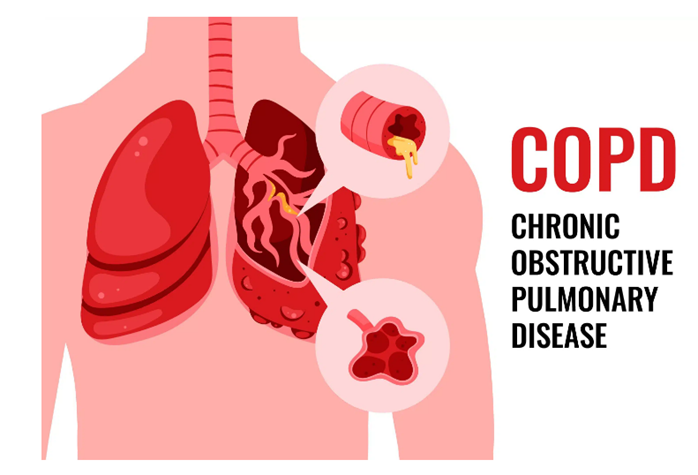The psychiatric nurse is caring for clients on an adolescent unit. Which client requires the nurse's immediate attention?
A 16-year-old client diagnosed with major depression who refuses to participate in group.
A 17-year-old client diagnosed with bipolar disorder who is pacing around the lobby.
An 18-year-old client with antisocial behavior who is being yelled at by other clients.
A 14-year-old client with anorexia nervosa who is refusing to eat the evening snack.
The Correct Answer is B
Choice A reason: A 16-year-old client diagnosed with major depression who refuses to participate in group does not require the nurse's immediate attention. Depression is a mood disorder that causes persistent feelings of sadness, hopelessness, and loss of interest. Refusing to participate in group may indicate low motivation, social withdrawal, or poor self-esteem, which are common symptoms of depression. The nurse should respect the client's preference and offer alternative activities or individual therapy.
Choice B reason: This client requires immediate intervention because pacing can be a sign of agitation, restlessness, or escalating mania. Clients with bipolar disorder in a manic phase may exhibit increased energy, impulsivity, irritability, and even aggression. If not addressed promptly, this behavior could escalate to disruptive outbursts, impulsive actions, or even violence toward themselves or others. The nurse should intervene by using calm communication, redirection, and possibly medication if prescribed to help de-escalate the situation and ensure safety.
Choice C reason: This scenario involves peer conflict, which is important to address, but it does not necessarily indicate an immediate risk of harm. Clients with antisocial behavior often engage in conflict due to manipulative or confrontational tendencies, but being yelled at does not mean they are in immediate danger. The nurse should monitor the situation and intervene to prevent escalation, but other safety concerns take priority.
Choice D reason: A 14-year-old client with anorexia nervosa who is refusing to eat the evening snack does not require the nurse's immediate attention. Anorexia nervosa is an eating disorder that causes extreme restriction of food intake and fear of weight gain. Refusing to eat the evening snack may indicate distorted body image, dietary rules, or anxiety, which are common factors of anorexia nervosa. The nurse should encourage the client to eat and provide support and education.
Nursing Test Bank
Naxlex Comprehensive Predictor Exams
Related Questions
Correct Answer is D
Explanation
Choice A reason: Marking an outline of the "olive-shaped" mass in the right epigastric area is not a priority nursing action. The mass is caused by hypertrophy of the pyloric sphincter, which obstructs gastric emptying and causes projectile vomiting. The mass may not be palpable in all cases.
Choice B reason: Instructing parents regarding care of the incisional area is a post-operative nursing action, not a pre-operative one. The parents will need to learn how to keep the incision clean and dry, monitor for signs of infection, and administer pain medication as prescribed.
Choice C reason: Monitoring amount of intake and infant's response to feedings is important, but not the highest priority. The infant may have difficulty feeding due to nausea, vomiting, and abdominal pain.
Correct Answer is C
Explanation
Choice A: Reinforcing need for adequate hydration is not the most important action for the nurse to implement, as this is a general recommendation for all clients and does not address the specific needs of this client. This is a distractor choice.
Choice B: Providing typed instructions for healthy diet selection is not the most important action for the nurse to implement, as this may not be feasible or accessible for this client who lives in a poor neighborhood and may have limited resources and literacy. This is another distractor choice.
Choice C: Scheduling follow-up appointments with specialists is the most important action for the nurse to implement, as this can ensure that this client receives continuous and comprehensive care for their complex and chronic conditions, which can improve their outcomes and quality of life. Therefore, this is the correct choice.
Choice D: Demonstrating specific breathing and walking exercises is not the most important action for the nurse to implement, as this can be done by other health care professionals or at home by the client. This is another distractor choice.

Whether you are a student looking to ace your exams or a practicing nurse seeking to enhance your expertise , our nursing education contents will empower you with the confidence and competence to make a difference in the lives of patients and become a respected leader in the healthcare field.
Visit Naxlex, invest in your future and unlock endless possibilities with our unparalleled nursing education contents today
Report Wrong Answer on the Current Question
Do you disagree with the answer? If yes, what is your expected answer? Explain.
Kindly be descriptive with the issue you are facing.
